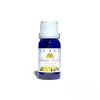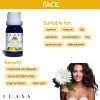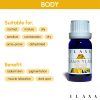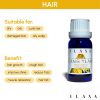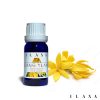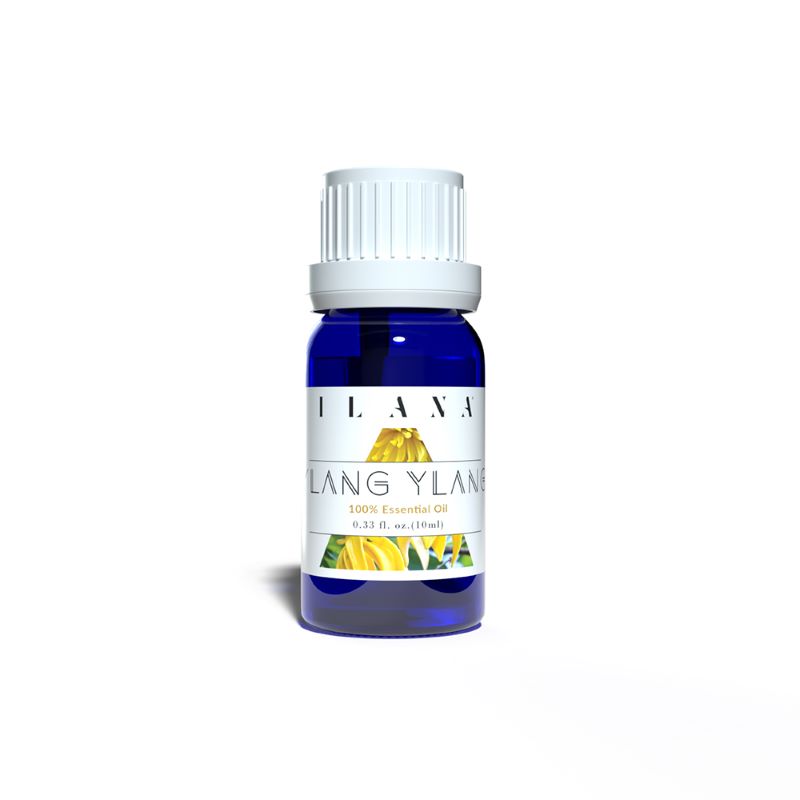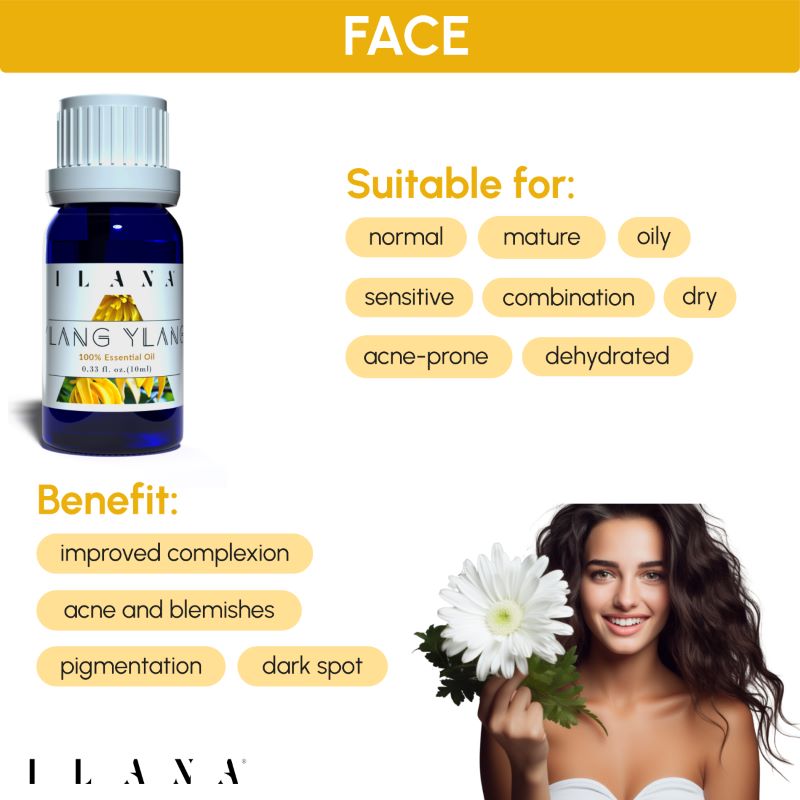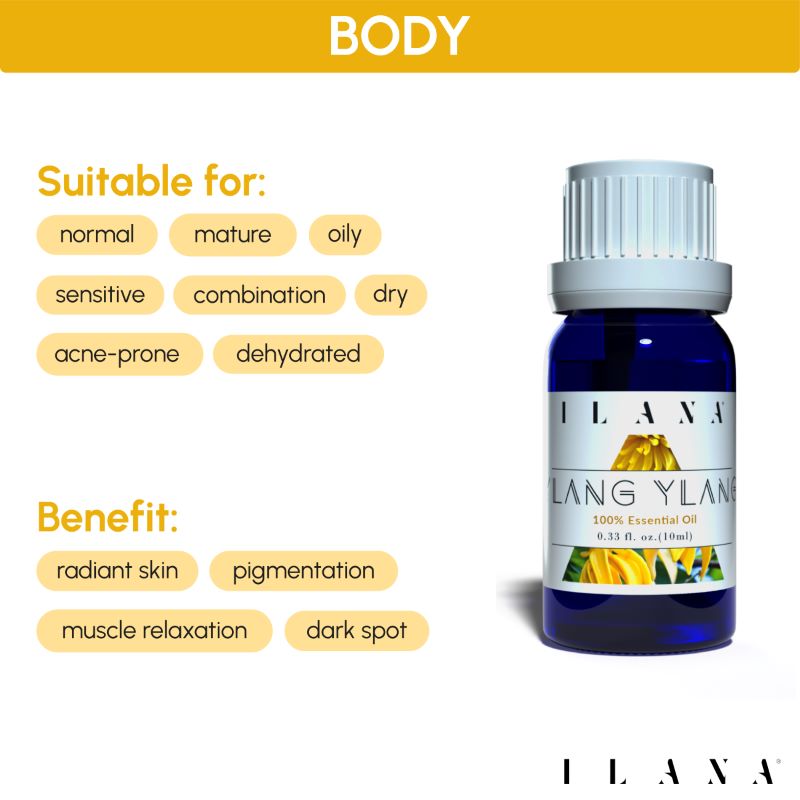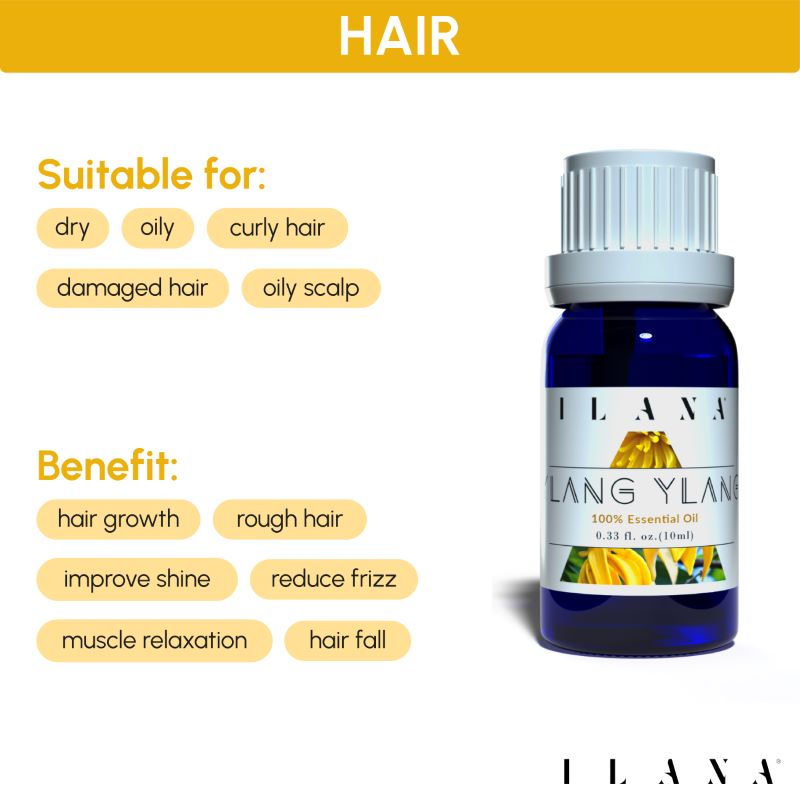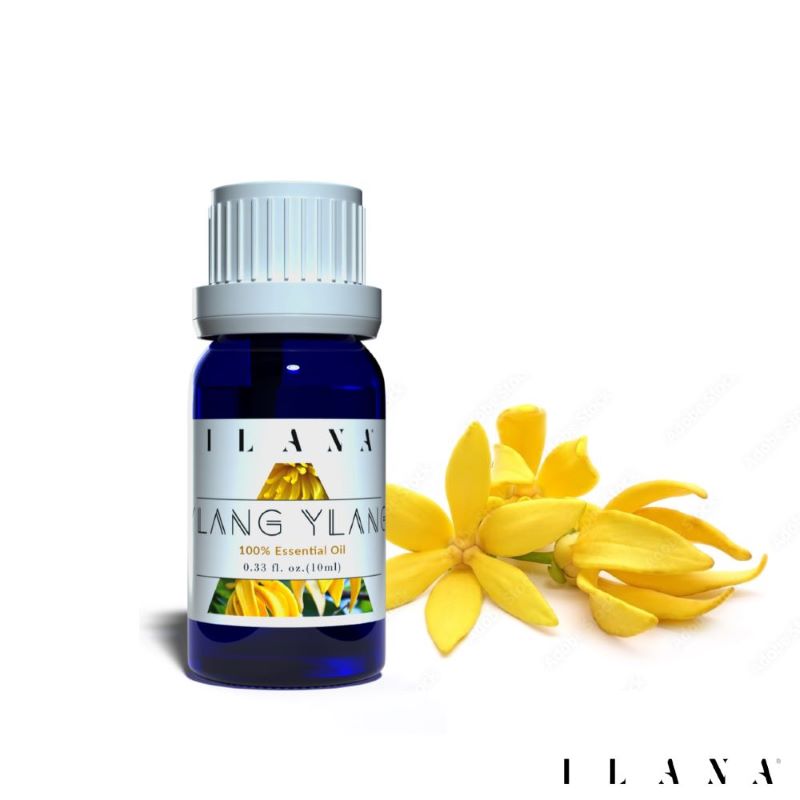- Is Ylang Ylang essential oil safe for all skin types?
Answer: Ylang Ylang oil is generally safe for most skin types, but it’s essential to dilute it with a carrier oil before applying it to the skin. People with sensitive skin should perform a patch test first to check for any adverse reactions.
- Can Ylang Ylang essential oil help with acne?
Answer: Ylang Ylang oil has antimicrobial properties and may help reduce acne-causing bacteria. When used in diluted form, it can be incorporated into your skincare routine to potentially address acne and blemishes.
- How should I dilute Ylang Ylang essential oil for skincare?
Answer: A typical dilution ratio is 1-2 drops of Ylang Ylang essential oil per tablespoon of a carrier oil, such as jojoba, almond, or coconut oil. Adjust the ratio based on your skin’s sensitivity and individual preferences.
- What are the benefits of using Ylang Ylang essential oil for skincare?
Answer: Ylang Ylang oil can help balance oil production, moisturize the skin, and provide a soothing and calming effect. It may also enhance mood and promote relaxation, indirectly benefiting the skin by reducing stress-related skin issues.
- Can Ylang Ylang oil be used for anti-aging purposes?
Answer: Ylang Ylang’s hydrating properties can contribute to a more youthful and supple complexion. However, it’s not a replacement for a comprehensive anti-aging skincare routine, which should include sunscreen, antioxidants, and other proven ingredients.
- Can I apply Ylang Ylang essential oil directly to my face?
Answer: It is not recommended to apply undiluted essential oil directly to the face, as it can be irritating to the skin. Always dilute it with a carrier oil before use to avoid potential adverse reactions.
- How should I store Ylang Ylang essential oil for maximum shelf life?
Answer: Ylang Ylang essential oil should be stored in a cool, dark place, away from direct sunlight and heat. Ensure the bottle is tightly sealed to prevent oxidation, which can decrease its shelf life.
- Are there any potential side effects of using Ylang Ylang essential oil on the skin?
Answer: Some individuals may experience skin irritation or allergies when using Ylang Ylang oil. Perform a patch test before widespread use, and discontinue use if any adverse reactions occur.
- Can Ylang Ylang essential oil be used during pregnancy or breastfeeding?
Answer: Pregnant or breastfeeding individuals should consult with a healthcare professional before using Ylang Ylang essential oil, as it may not be recommended for them due to its hormonal effects.
- Is Ylang Ylang essential oil safe for children’s skincare?
Answer: Ylang Ylang oil is generally not recommended for children, especially in high concentrations, as it may cause skin irritation or sensitization. Always use essential oils cautiously with children and follow age-appropriate guidelines.
- Can I apply Ylang Ylang essential oil directly to my hair and scalp?
Answer: It’s generally recommended to dilute Ylang Ylang essential oil with a carrier oil before applying it to your hair and scalp. A common dilution ratio is 1-2 drops of Ylang Ylang oil per tablespoon of carrier oil.
- What are the benefits of using Ylang Ylang essential oil in hair care?
Answer: Ylang Ylang oil can help moisturize the hair and scalp, improve scalp health, control frizz, add shine, and provide a pleasant fragrance. It may also promote relaxation and reduce stress-related hair issues.
- Can Ylang Ylang oil promote hair growth?
Answer: While Ylang Ylang oil can improve scalp health and stimulate blood circulation, there is limited scientific evidence to support its direct role in hair growth. It may indirectly support healthier hair growth by creating a favorable scalp environment.
- How often should I use Ylang Ylang essential oil on my hair?
Answer: The frequency of use can vary based on your hair type and needs. You can use Ylang Ylang oil as a scalp massage or hair treatment 1-2 times a week or as needed. Using it daily may be excessive for some individuals.
- Can Ylang Ylang essential oil help with dandruff?
Answer: Ylang Ylang oil’s moisturizing and antimicrobial properties may help alleviate dryness and itchiness associated with dandruff. However, it’s not a substitute for dedicated anti-dandruff treatments.
- Can Ylang Ylang oil be used on colored or chemically treated hair?
Answer: Ylang Ylang oil is generally safe for use on colored or chemically treated hair. However, it’s always a good practice to perform a patch test to ensure compatibility and check with your haircare professional if you have specific concerns.
- Can I leave Ylang Ylang oil in my hair overnight?
Answer: Yes, you can leave a Ylang Ylang oil-infused hair mask in your hair overnight for deeper conditioning. Be sure to protect your pillowcase to avoid staining and wash it out thoroughly in the morning.
- Is Ylang Ylang oil safe for all hair types?
Answer: Ylang Ylang oil is generally safe for most hair types. However, individuals with very sensitive scalps or known allergies should use it with caution and consider performing a patch test before widespread use.
- Can I mix Ylang Ylang oil with other essential oils for hair care?
Answer: Yes, Ylang Ylang oil can be combined with other essential oils like lavender, rosemary, or cedarwood to create customized hair care blends. Ensure proper dilution and consider the specific benefits of each oil.
- Are there any potential side effects of using Ylang Ylang oil on the hair?
Answer: Some people may be sensitive to essential oils, so it’s essential to perform a patch test before use. Excessive use or undiluted application may lead to irritation or sensitization. Use it in moderation and according to your hair’s needs.
